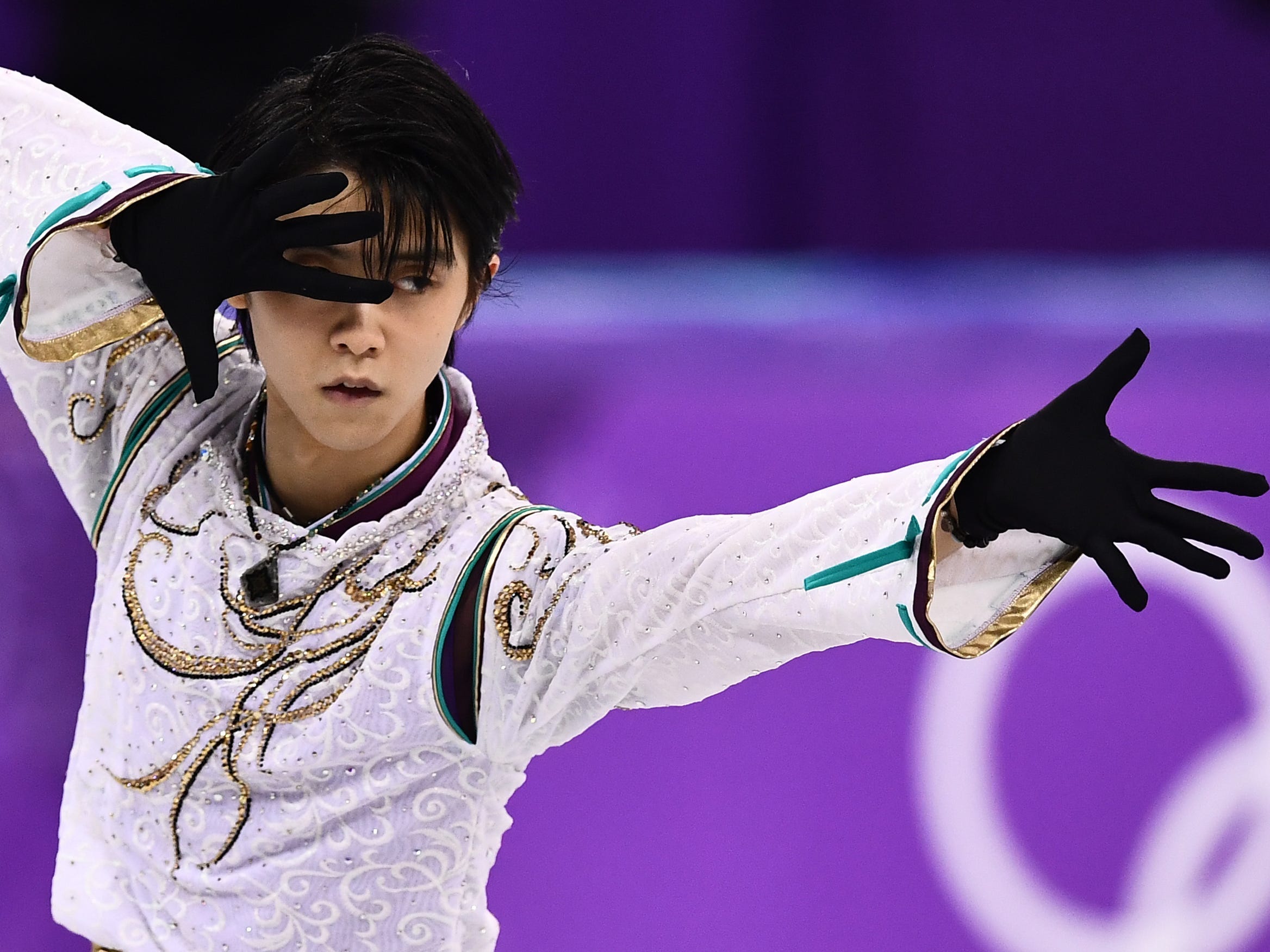
- Japan's greatest hope for the Beijing Games is two-time gold medalist Yuzuru Hanyu.
- Dubbed Japan's "Ice Prince" by his fans, Hanyu is gunning for a quadruple Axel, which has never been landed in competition.
- He is expected to attempt the jump on Thursday during his free skate program.
At a nondescript shrine in the southern Japanese province of Hyogo, 29-year-old Takada Chie closed her eyes and prayed for Japan's Ice Prince, figure skater Yuzuru Hanyu.
Takada, who works in marketing, made the 326-mile pilgrimage from her home in Tokyo, all the way to Mikage, Kobe City, to seek blessings from the Yuzuruha shrine. This was her second visit to the place of worship, which has become something of a hot spot among the figure skater's super-fans. That's because while the shrine is dedicated to Kumano-okami, a mythological three-legged crow, its name shares several syllables with Hanyu's.
When Hanyu suffered an injury in 2018, thousands flocked to the shrine to leave wooden votive tablets in support of the athlete. Hanyu is known to have visited the shrine himself to pray for victory before competitions.
"I came here before Pyeongchang, too, to seek blessings before he skated," Takada told Insider, referencing the site of the 2018 Winter Olympics. She has been a diehard fan of Hanyu's since the 2014 Sochi Olympics, where the then-19-year-old won his first gold medal.
Eight years on, Hanyu, now 27, carries the weight of Japan's hopes for a men's figure skating gold medal on his shoulders. If he wins on February 10, he will cement his legacy in Olympic history and become the only other man since Sweden's Gillis Grafström's record in 1928 to win three successive Olympic men's singles figure skating golds.
"When you put on the Japan jersey, you have to win," Hanyu said after winning the Japanese national championships in December. "The Olympics isn't a recital. It's a place where you have to win."
Hanyu is, however, going into the Games with a competition track record marred by close-to career-ending injuries. He won his second back-to-back gold medal in Pyeongchang in 2018, despite going into the competition recovering from an ankle ligament injury. In 2021, another leg injury prevented him from competing from April to November.
Also standing in Hanyu's way is American skater Nathan Chen, who has out-scored Hanyu the last three times they competed head-to-head.
"I'm honored to be alive at the same time as him," Chen said this week, calling Hanyu an inspiration. "It's pretty crazy what he's doing. It's been a really great adventure and journey for me to have someone like him to share the ice with."
While Chen might be a formidable opponent, Hanyu is looking to tilt the scales in his favor with a quadruple Axel, a jump that has never been pulled off before in any competition.
Hanyu has described the arduous three-year journey to attempt the risky jump — which would require him to rotate four-and-a-half times in mid-air before landing — as "walking through darkness."
"I've been practicing thinking I might die from a concussion if I fall and hit my head on the ice," he told Japanese news outlet Mainichi Shimbun.
In December, he came close to landing it at the Japanese nationals — landing on two feet instead of one — and is expected to try it again at the Beijing Games.
Hanyu is expected to skate on Tuesday to Camille Saint-Saëns' Rondo Capriccioso for his short program. He will then attempt the quad Axel during his free skate on Thursday to "Heaven and Earth," a piece by Japanese composer Isao Tomita.
"Of course, I'm aiming to get the gold, but as things stand now, I know I'm not in a position to win," Hanyu told the Japan Times after the Japanese nationals. "Of course, I could forget about the quad and use other ways to try to win the gold, but the main reason I chose to compete in Beijing is because I want to land the quad."
